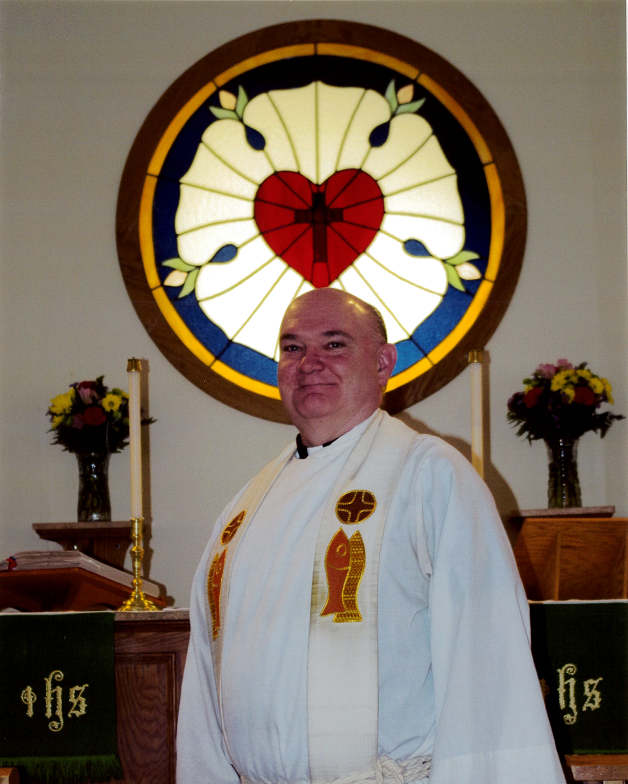A Word from Pastor Jay


“Everything that is done in the world is done by hope.” (Martin Luther)
As we approach our celebration of the Reformation each year during the month of October, I imagine it is important for us to think about why we would celebrate this occasion year after year. Certainly, it is an important historical event, especially among those of us who consider ourselves Christians of the “Lutheran” persuasion. Many of us have grown up hearing of the figure of Martin Luther and have read and heard about the Reformation which he helped to bring about. There are great theological doctrines and discourses which have been passed down, generation after generation, to us who consider ourselves modern day heirs of this tradition of Reformation, and that, in itself, probably qualifies as a reason to celebrate the reformation, as we base our theology in these “reforming” ideas and our practice in our efforts to share these ideas with the world. However, among the towering, sturdy trees of Lutheran theology and practice which shape our ideas of Christian ecclesiology (understanding of what the church is) I find that the Luther quote from above serves as a spring of the water of life running among these sturdy trees. When Martin Luther posted the 95 Theses in Wittenberg on October 31, 1517, he hardly could have known what kind of storm this would produce throughout all of Western Christianity. He simply wanted to share in a conversation about the nature and mission of the church (Ecclesiology). He had read enough of Scripture and had experienced enough of the human condition that he felt compelled to want to help the church understand its call, its mission in the world in a deeper, more Christlike way. He did not want to fracture the church, or to start a new denomination. In fact, on that day, he had no idea how this simple act, a call for debate and conversation, would change the world. All he had was simple hope. He hoped for a Church which was bound and freed by the gospel alone to present the truth of resurrection life, in all its fullness, unleashed upon the world. He hoped that the Church could return to its basic mission to share the love of Christ active in the world so that individual, regular human beings, children of God, could hear and believe and feel that God’s limitless love through Christ was real in their lives. He wanted to replace a broken ecclesiology with one which aided the individual believer to grasp the truth of God’s love and never to let go.
We know that this single call for conversation in the Church spread like a wildfire and became the Reformation. A simple, small-town monk, priest and scholar, known only to a few people who lived near him, expressed his hope and changed the world. Still, why should we marvel at this? Isn’t this the way God often works? He who can turn a childless couple into the parents of a nation (Abraham and Sarah), who could take a farmer and tender of sycamore trees and make him a prophet (Amos), who could enter the world as a baby in a stable, who could take a handful of country folk in first century Galilee and make them the builders of the first church (Apostles) can do amazing things with a willing heart and some hope.
We live in trying times. We needn’t feel sorry for ourselves, because generations of Christians before us have faced difficulties and hardship. In the midst of trying times, they did what they were called to do. They continued to be the Church. The shared the love of God actively. They remained true to their mission to make the love of God through Christ known to all. It wasn’t easy. Sometimes they failed. Sometimes they got it wrong, and had to step back, regroup and try again. We are the church today, however, because they didn’t give up. They lived and served with hope. They hoped in things they could not see, believed in promises held in faith and overcame the obstacles which hindered their way forward. They handed the gospel to us. Now it is our turn to hope in what we cannot see and to believe with faith in our shared mission and ministry. Now it is our turn to understand that God works through regular people like you and me to accomplish what God wishes to accomplish. They may be deeds great or small, they may be softened by our limitations, they even may not feel all that “God-inspired,” but as we remain true to our calling to share the love of Christ, God takes our acts of love and uses them to great effect. At times, we might disagree about what our mission forward should be in real and practical ways, but buoyed by our faith in the one who can open our eyes to the possibilities before us, and who can take our imperfect abilities and create Gospel reality, we can move forward with confidence. As God used a simple monk filled with hope to reform the church, God can use us, hope intact, to be the church here.
“Everything that is done in the world is done by hope.”